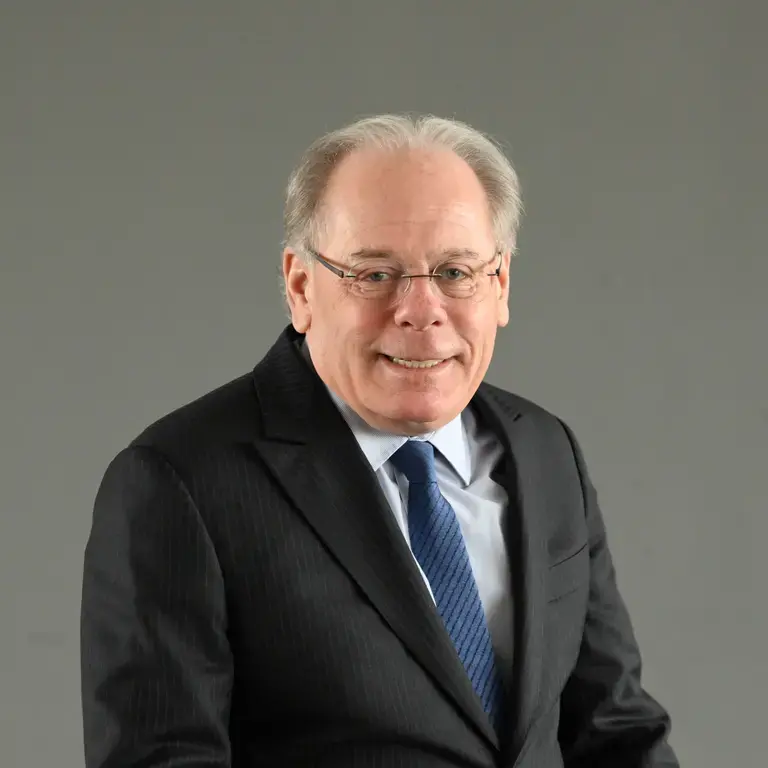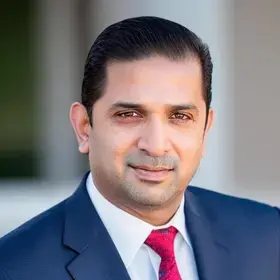By Steven Cohen, Ph.D., Director of the M.S. in Sustainability Management program, School of Professional Studies
In 1956, then-Senator John F. Kennedy wrote a classic work entitled Profiles in Courage, detailing the principles and courage of eight U.S. senators who risked their political careers to vote their conscience. Perhaps I should send New York’s governor a copy of the book to give her some role models she might consider following. In a crass political calculation designed (probably incorrectly) to advance the Democratic party’s chances in tight congressional races, Hochul threw New York’s mass transit riders under the bus by canceling congestion pricing and, with it, 15 billion dollars of desperately needed capital funding for New York City’s mass transit system. In a poorly thought-through act of political panic, she claimed the fee would have had a negative economic impact. This is a false and fact-free assertion. According to Grace Ashford of the New York Times:
“The governor said she feared that instituting a toll to drive into the borough would “create another obstacle to our economic recovery.” “Let’s be real: A $15 charge may not seem like a lot to someone who has the means, but it can break the budget of a hard-working middle-class household,” Ms. Hochul said.”
Yes, governor, let’s be real. As you should know, very few of the people driving private vehicles south of 60th Street are “hard-working middle-class” drivers. Most are rich, and the data clearly indicates that well over 90% of commuters to lower Manhattan take mass transit. For the hardship cases that we find, it is possible to exempt them from the charge. And as we gain experiences with any negative impacts, charges could have been adjusted. But what can’t be adjusted is the self-serving, cynical politics practiced by the governor and sadly stimulated by congressmen like Tom Suozzi and Hakeem Jeffries. Shame on all of them. Here’s a secret folks: the extra $15 bucks is nothing compared to the $50 or more it costs to park in a garage in lower Manhattan. Moreover, congestion pricing would have mostly taxed wealthy drivers to pay for improvements in mass transit used by less-wealthy people. There are exceptions, for example, cops who live outside the city and park on the sidewalk by their station house and others who don’t pay for parking. But they are a tiny minority. Most of those hard-working middle-class people the governor claimed to be concerned about are riding on the trains and busses of the New York region. Opposition to congestion pricing is based on ideology and pushed by propaganda, not financial analysis.
The argument that the fee will impair New York’s economic recovery is pathetic. There is no data of any kind that backs up this ridiculous assertion. First, think of the impact of $15 billion in capital improvements to mass transit. A lot of that money will prime the pump of the private companies that will install new subway equipment and dig the expanded 2nd Avenue Subway. The efficiency due to saved travel time for cars and trucks will also generate significant economic benefits. Deliveries will be made faster since traffic will move faster, and the money saved on more efficient shipping may well be more than the fee charged to trucks. Many people avoid driving their cars in lower Manhattan due to the traffic, but those who must travel on the surface will move faster to their destination. Many people who could take mass transit but don’t might be attracted by improvements in service and comfort funded by the congestion fee. The bottom line is that congestion pricing will bring more people and more money into lower Manhattan, not fewer people and less money.
The argument made by some of these cowardly politicos is they like the idea of congestion pricing, but the timing is wrong. But they know that elections come every November, and just as cocktail lovers can say, “It’s five o’clock somewhere,” self-serving, unprincipled elected officials can always cite the current condition of the economic or political environment as a reason to delay doing something bold and principled. It appears that the impetus for Hochul’s action was pressure from House Minority Leader Hakeem Jeffries to help in tight New York Congressional races that, if won, could enable him become Speaker of the House. In a Politico piece posted by Nick Reisman on June 5th, he noted that:
“…public polls showed the initiative was profoundly loathed by voters in New York City’s metropolitan region, notably those in suburban swing seats that are pivotal for Democrats’ chances of regaining control of Congress. Private surveys with similar findings were shared with the governor’s team, a person familiar with the matter told POLITICO…Prominent Democrats — including House Minority Leader Hakeem Jeffries — had also supported the move to delay the implementation of the toll plan. Jeffries’ office in a statement Wednesday insisted he was “neutral” over congestion pricing, but nevertheless said he supported a temporary pause to study its impact on working-class New Yorkers.
Come on, Congressman Jeffries, you are far from neutral, and everyone knows it. Studying the impact would be best achieved by allowing the policy to be implemented and adjusting it if needed. Studies projecting the positive impact of congestion pricing have already been conducted. What a shameful dodge of responsibility. It appears that Hochul and Jeffries are taking a page from the Trump political playbook: read the polls and make up “facts” so you can do what’s popular.
Political players will argue that I am politically naïve and that they can’t accomplish anything if they are not in power. My argument is that if they do not govern by principle, they can’t be trusted with power. Raising tolls, user fees, and taxes is never popular. Traffic gridlock and deteriorating mass transit are also unpopular. It always takes political courage in modern America to promote a critical piece of public policy. Ask Barack Obama how much political capital he spent to ensure that the Affordable Care Act became law. America has been on an anti-tax and anti-government binge since Ronald Reagan was elected president in 1980. Hochul’s retreat from principle also seems to be backfiring politically. Republicans are attacking the pause as temporary and correctly point out that this flip-flop demonstrates that Democrats can’t be trusted. Moreover, the sudden and dramatic delay has served to increase congestion pricing’s political salience and visibility. What might well have been a minor story about reduced gridlock by November has now become a major controversy about abandoning the region’s mass transit system.
A modern, complex, interconnected, and high-tech economy requires public-private partnerships and public policies that help manage the negative impacts generated by the way we live. Many of us enjoy our lifestyle and the benefits it generates. New Yorkers like to move around their city. Many do that in private vehicles that take up much more of New York’s crowded street space per passenger than mass transit. They should be permitted to drive if they want to, but they should pay for the privilege where their consumption behavior impairs the rights of others to move around the city. Bus lanes and congestion fees are designed to move surface traffic faster. That is one of the goals of the congestion fee. Everywhere these fees have been implemented, they have worked, and traffic moves faster. It’s worked in London, Stockholm, and Singapore, and it will work in New York if our government ever gets around to trying it.
In the case of New York, another goal of the policy was to generate funding for mass transit. That would provide some travelers with an attractive alternative to riding in a private vehicle. Improving transit enhances New York City’s economy. The subway system is akin to the human circulatory system: It keeps our economic, social, and cultural heart beating. Hochul and Jeffries just delivered an attack on our heart. One can only hope that some form of political bypass surgery is successful and somehow saves our deteriorating mass transit system. Moreover, one might also hope that somewhere in our political system, we can find public officials willing to take a cue from JFK’s eight courageous senators instead of Hochul’s political cowardice.
Views and opinions expressed here are those of the authors, and do not necessarily reflect the official position of Columbia School of Professional Studies or Columbia University.
About the Program
The Columbia University M.S. in Sustainability Management program offered by the School of Professional Studies in partnership with the Climate School provides students cutting-edge policy and management tools they can use to help public and private organizations and governments address environmental impacts and risks, pollution control, and remediation to achieve sustainability. The program is customized for working professionals and is offered as both a full- and part-time course of study.



